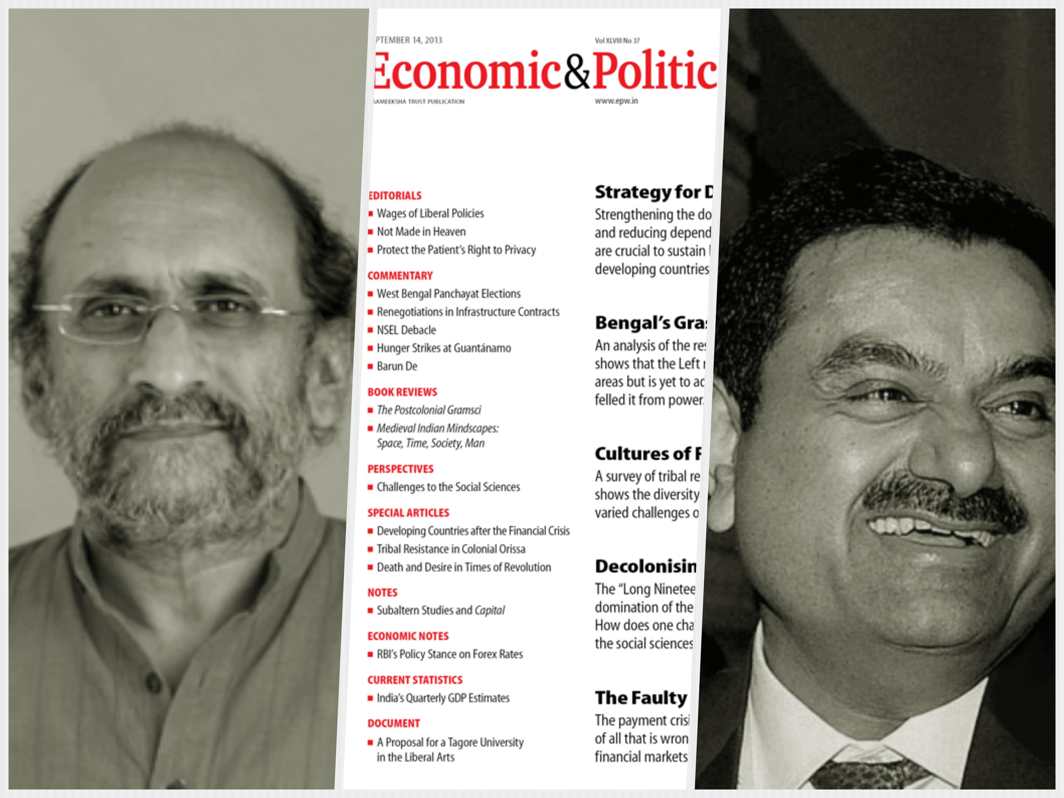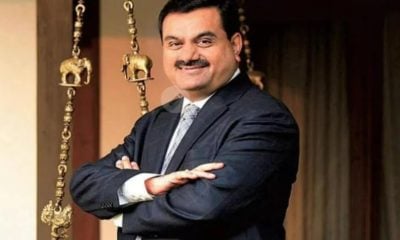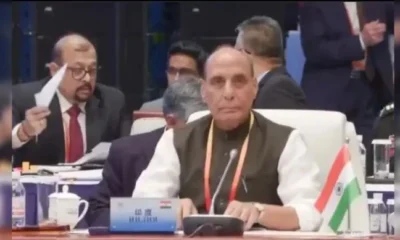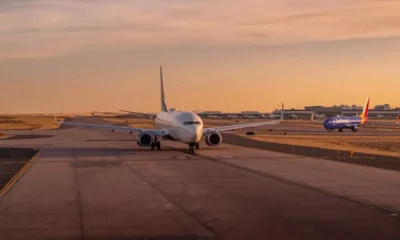[vc_row][vc_column][vc_column_text]More than 150 members of the academic community and contributors to the EPW have written an open letter to the directors of Sameeksha Trust, which brings out the journal Economic and Political Weekly (EPW), questioning their decision to remove an article on the Adani Group from the EPW website and impose restrictions on the editor. They have asked the trustees to make an effort to engage with the larger community on recent events and restore the independent nature of the journal, questioning their decision to cow down to corporate pressure.
On July 18, Economic and Political Weekly (EPW) editor Paranjoy Guha Thakurta resigned from his position after directors of the Sameeksha Trust ordered that he take down an article on the Adani Group. The Adani Group had written to the board and Guha Thakurta saying that the article was defamatory and threatened to take them to court.
Guha Thakurta has said that, in addition to asking that the article be taken down, the board told him he could no longer publish articles with his by-line in the journal and would have to work with a co-editor in the future.
The board members, in their statement, have not denied this or questioned the factual nature of the original articles. They said instead that Guha Thakurta had “exceeded his brief” by responding to the Adani Group’s letter on his own and initiating legal process on behalf of the Sameeksha Trust “without informing, let alone obtaining approval of, the Trust”.
The Sameeksha Trust’s actions upset the wider community of scholars who have been part of the ‘EPW community’ as readers and writers. Their letter to Sameeksha Trust directors and the list of signatories is reproduced below:
Open letter to the board members of the Sameeksha Trust
As long-standing well-wishers and members of the intellectual community served by the EPW, we are appalled and dismayed by the recent events leading to the abrupt resignation of the editor, Paranjoy Guha Thakurta.
We are distressed that the board of the Sameeksha Trust has insisted that the editor retract an article published in the journal, and is preparing to introduce new norms for the board-editor relationship and appoint a co-editor. It is obvious that, taken together, these actions (mentioned by the editor in interviews to the press and not denied in the statement issued by the trust) would force any self-respecting editor to resign. By failing to distinguish between internal issues of procedural propriety in the board-editor relationship from the much larger question of the EPW’s public reputation for integrity, the board of the Sameeksha Trust has dealt a strong blow to the journal’s credibility.
Paranjoy Guha Thakurta’s professional reputation has been primarily that of an investigative journalist of several decades standing. His well-known past exposés have delved into the malpractices of large corporations and the frequent complicity of state institutions in such corrupt practices. That such journalism could provoke retaliation by those investigated may be expected. These facts must have been known to the board of trustees of the Sameeksha Trust when they appointed Guha Thakurta as editor just 15 months earlier. It is one thing to wonder if the editor may have erred in initiating legal action on behalf of the Trust without first consulting its board, and quite another to withdraw an already published article from the journal. If the board believes the article to be mistaken in its facts, it must issue a public apology and retraction. If it is only concerned that due deference was not shown to the board, it must publicly stand by the article. By forcing the editor’s resignation without clarifying its stand on the substance of the article, the board has diminished the institution that it is mandated to nurture.
The fact that a legal notice was sent to the editor and the publishers (Sameeksha Trust) of EPW, for an ongoing investigation on the tweaking of rules that have benefited the Adani Group, is not surprising. Legal notices have unfortunately become the standard means used to intimidate and suppress investigative journalism. When they translate into court cases that can extend over years, they obviously add to costs and further harassment of honest journalists. However, as long as all the published material can be adequately substantiated and verified, there is little reason to fear an adverse result from the judicial process. But publishers MUST stand behind and back their editors on this if the journals are to maintain their independence and credibility.
India is currently living through a dark period in which there are real concerns about freedom and independence of intellectual expression, both for academics and journalists, with significant corporate takeover of major media houses and increasing instances of overt and covert intimidation of independent thinking and debate. In this context, reports of what appears to be a capitulation by the board of trustees of Sameeksha Trust – removing the “offending” article from the EPW website and trying to impose humiliating terms on the editor – are alarming. The EPW has a long and distinguished tradition of promoting independent and critical thinking that is vital in a democracy. We expect the current trustees to be mindful of our inherited legacy that they hold in trust on behalf of us as scholars, analysts and activists in India and abroad, who have contributed to EPW over long decades. They need to take immediate steps to restore the prestige and credibility of the journal and the Sameeksha Trust. This letter is therefore also asking the Trust, which (regardless of its purely legal status) is in the nature of a body accountable to a larger public, to create channels of communication between the Trust and the EPW community so as to strengthen the autonomy and integrity of EPW.
- AR Vasavi, Independent researcher Bangalore
- Aabid Firdausi, Kerala University
- Abdi Seido, Dire Dawa University, Ethiopia
- Abhijit Banerjee, Professor, MIT
- Abhijit Sen, Retired Professor, Jawaharlal Nehru University, New Delhi
- Aditya Nigam, Professor, Centre for the Study of Developing Societies
- Akeel Bilgrami, Sidney Morgenbesser Professor of Philosophy, Columbia University
- Alicia Puyana Mutis, Professor, Flacso, Mexico City
- Amar Yumnam, Professor, Manipur University, India.
- Amita Baviskar, Professor, Institute of Economic Growth
- Amiya Kumar Bagchi, Emeritus Professor, Institute of Development Studies, Kolkata
- Anamitra Roychowdhury, JNU
- Anand Chakravarti, Retired Professor, University of Delhi
- Anandhi S., Professor, MIDS Chennai
- Andrew Cornford, Geneva Finance Observatory
- Anis Chowdhury, Professor, University of Western Sydney
- Anupam Mitra
- Arindam Sen, Editor, Liberation, Kolkata
- Ashish Rajadhyaksha, Independent researcher, Bangalore
- Ashok Chowdhury, All India Union of Forest Working People
- Ashwini Deshpande, Professor, Delhi School of Economics
- Avinash Kumar, Jawaharlal Nehru University, New Delhi
- Avnesh Kumar Gupta, World Forum of Economists
- Balwinder Singh Tiwana, Punjabi University
- Bina Agarwal, Professor, University of Manchester
- Bindu Oberoi, Indraprastha College for Women, Delhi University
- CP Chandrasekhar, Professor, Jawaharlal Nehru University
- Carol Upadhya, NIAS Bangalore
- Chandra Dutt, Director, COSTFORD, Kerala
- Collins Mtika, Director – Centre for Investigative Journalism – Malawi
- Dhruva Narayan, Centre for Social Development
- Dia Dacosta, University of Alberta
- Dipa Sinha, BR Ambedkar University, Delhi
- EAS Sarma, IAS Retd, Hyderabad
- Eleuterio Prado, Professor, São Paulo University, Brazil
- Farah Naqvi, Writer and activist, Delhi
- Geeta Kapur, Art scholar, Delhi
- Gita Chadha, University of Mumbai
- Gopi Kanta Ghosh, Independent researcher
- Hemant Adlakha, Jawaharlal Nehru University
- Himanshu, Jawaharlal Nehru University
- Itty Abraham, National University of Singapore
- J Devika, Centre for Development Studies, Kerala
- J George, (Rtd) Independent Researcher, DELHI
- Jai Sen, World Social Forum
- Janaki Abraham, Delhi School of Economics
- Janaki Nair, Jawaharlal Nehru University
- Jayati Ghosh, Professor, Jawaharlal Nehru University
- Jeemol Unni, University of Ahmedabad
- Jesim Pais, Society for Social and Economic Research
- Jomo Kwame Sundaram, Malaysia
- Joseph MT, University of Mumbai
- K Ramakrishnan, Chennai
- K Srivatsan, Anveshi Research Centre Hyderabad
- Kalpana Kannabiran, Council for Social Development, Hyderabad
- Kalyan Shankar Ray, Bhubaneswar
- Kannan Srinivasan, New York
- Kunibert Raffer, retired Professor, University of Vienna
- Kushankur Dey, Xavier University Bhubaneswar
- Kuttappan Vijayachandran, Industrial Research Services
- Lata Mani, Bangalore
- Laurence Cox, National University of Ireland and Fondation des Sciences des Hommes Paris
- Lawrence Shute, Prof Emeritus, California State Polytechnic University
- Laxmi Murthy, Bengaluru
- M Vijayabaskar, Professor, Madras Institute of Development Studies
- MS Bhatt, retired Professor, Jamia Millia Islamia
- MV Ramana, Professor, University of British Columbia, Canada
- Malancha Chakrabarty, Observer Research Foundation
- Mandeep Kaur, Dyal Singh College
- Mandira Sarma, Jawaharlal Nehru University
- Mani Kumar, Independent researcher
- Manoranjan Mohanty, retired Professor, Delhi University
- Mary E John, Professor, CWDS, New Delhi
- Martha Nussbaum, University of Chicago
- Matt Meyer, International Peace Research Association
- Meyer Brownstone, Professor Emeritus, University of Toronto
- Mohammad Konneh
- Mritunjoy Mohanty, Professor, IIM, Kolkata
- Mustafa Ozer, Anadolu University, Turkey
- N Krishnaji, retired, Centre for Development Studies
- N Mani, Erode College, Kerala
- Nandini Sundar, Professor, University of Delhi
- Navnita Behera, IRIIS
- Nayanjyoti, Research Scholar, Delhi University
- Nirmalangshu Mukherji, Professor, Delhi University
- Nivedita Menon, Professor, Jawaharlal Nehru University, New Delhi
- Noam Chomsky, Professor, MIT
- Oishik Sirkar, Jindal Law University, Sonepat
- Padmini Swaminathan, retired Professor, Tata Institute of Social Sciences, Hyderabad
- Paris Yeros, Professor, Federal University of Rio de Janeiro, Brazil
- Partha Chatterjee, Professor, Columbia University
- Partha Ray, IIM Calcutta
- Patrick Bond, Professor, University of Witwatersrand, South Africa
- Prabhu Mohapatra, University of Delhi
- Pradip Kumar Datta, JNU
- Pranab Bardhan, University of California Berkeley
- Praveen Jha, Professor, JNU
- Prem Chowdhry, Historian
- Pushpendra, Professor Tata Institute of Social Sciences, Patna
- R Nagaraj, IGIDR
- R Ramakumar, Professor, Tata Institute of Social Sciences, Mumbai
- R Srivatsan, Anveshi Research Centre for Women’s Studies
- Radha D’Souza, University of Westminster
- Radhika Desai, Professor, University College, Manitoba
- Radhika Singha, Professor, Jawaharlal Nehru University
- Rajarshi Dasgupta, Journalist, Kolkata
- Rajender Singh Negi
- Rajni Palriwala, University of Delhi
- Rama Melkote, retired Professor, Osmania University
- Ramchandra Guha, Bengaluru
- Ranjini Mazumdar, Professor, Jawaharlal Nehru University, New Delhi
- Ravi K Tripathi, Université Pairs XIII – Sorbonne Paris
- Ravi Sundaram, CSDS, Delhi
- Rohit Azad, Jawaharlal Nehru University
- Rosa Abraham, Institute of Social and Economic Change, Bengaluru
- S Parasuraman, Tata Institute of Social Sciences, Mumbai
- SV Narayanan, Independent Analyst
- Sabyasachi Bhattacharya, Professor Emeritus, JNU
- Sakuntala Narasimhan, Independent scholar
- Samuel H Daniel, Independent researcher USA
- Sanjay Srivastava, Institute of Economic Growth, Delhi
- Sashi Kumar, Chairman, Media Development Foundation, Chennai
- Satish Deshpande, Professor, Delhi University
- Seth Sandrowsky, Sacramento, California
- Shambhu Ghatak, Associate Fellow, Inclusive Media for Change
- Shipra Nigam, Research Scholar
- SK Godwin, SK, IIM Kolkata
- Sudeshna Banerji, Jadavpur University
- Sudip Chaudhuri, Professor IIM Kolkata
- Sumit Mazumdar, Institute of Public Health, Kalyani
- Sumit Sarkar, retired Professor, University of Delhi
- Sunanda Sen, retired Professor, Jawaharlal Nehru University
- Suneetha Achyuta, Coordinator, Anveshi Research Centre for Women’s Studies
- Sunil Khilnani, Professor, King’s College London
- Sunil Mani, Director, CDS Trivandrum
- Surajit C Mukhopadhyay, Seacom Skills University
- Sushil Khanna, Professor, IIM, Kolkata
- Susie Tharu, Professor Emerita, English and Foreign Languages University Swati Pillai, Watershed Organisation Trust Pune
- T M Thomas Isaac, Finance Minister, Government of Kerala
- Tanika Sarkar, retired Professor, Jawaharlal Nehru University, New Delhi
- Tejaswini Niranjana, Professor, Lingnan University, Hongkong
- Uma Chakravarti, retired historian, Delhi University
- Uma M Bhrugabanda, EFLU Hyderabad
- Uma Maheswari Bhrugubanda, EFL University
- V Geetha, Independent scholar, Chennai
- Veena Naregal, Institute of Economic Growth, Delhi University
- Veena Shatrugna, retired, National Institute of Nutrition Hyderabad
- Venkatesh Athreya, Professor of Economics (Retired), Bharathidasan University
- Vikas Rawal, Professor, Jawaharlal Nehru University
- Vipin Negi, University of Delhi
- Vishal Sarin, LP University
- Vivan Sundaram, Artist, Delhi
- Yılmaz Akyüz, Chief Economist, South Centre (Former director, UNCTAD)
- Zoya Hasan, Professor Emerita, Jawaharlal Nehru University
[/vc_column_text][/vc_column][/vc_row]


 India News15 hours ago
India News15 hours ago
 India News14 hours ago
India News14 hours ago
 India News5 hours ago
India News5 hours ago
 Cricket news4 hours ago
Cricket news4 hours ago
 India News4 hours ago
India News4 hours ago














